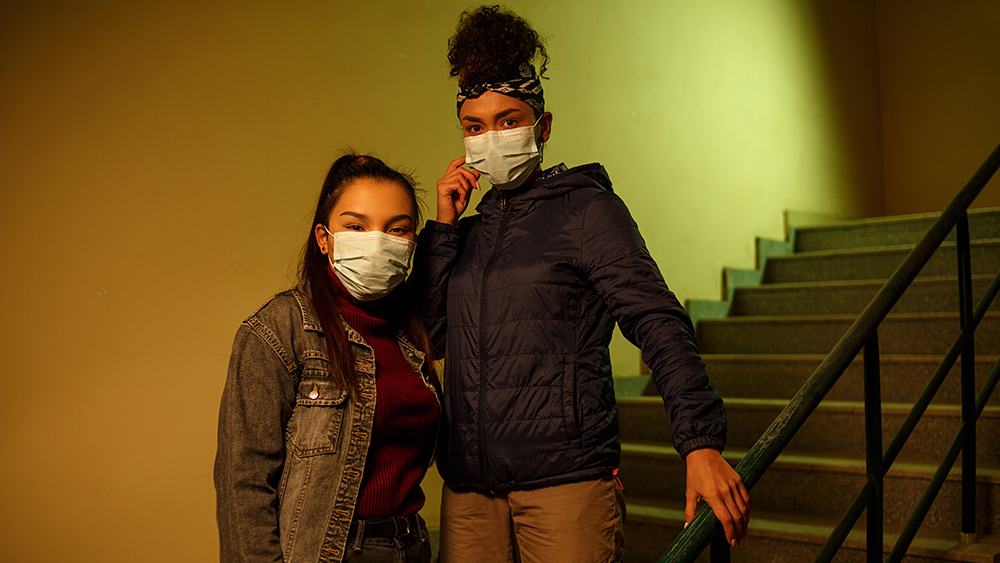
As school districts move to teach students remotely over the internet, they have to weigh the potential public health risks of bringing students into classrooms against the shortcomings of remote schooling programs, which were hastily rolled out in the spring.
These shortcomings are amplified for children in the nation's worst-performing schools, where the majority of the students come from low-income families. Giving these students access to remote learning materials and connecting them to their teachers have been a challenge.
Low-income students hurt the most
Ever since her son's school in Jackson, Mississippi shut down in March, 41-year old single mother LaKenya Bunton has had to play teacher to her son Amarius. The latter received no remote-learning materials from his school and he did not hear from most of his teachers. As such, Bunton spent whatever free time she had between her night-shift job at a factory acting as a teacher, at times only getting a few hours of sleep at the most.
“I’m educating him the best way I can,” said the 41-year-old single mother. “I don’t want him to be behind.”
According to Bunton and other parents, they had tried to get homework packets with the rest of the year's curriculum from their children's schools, but they were told that none were available.
Dr. Errick Greene, Superintendent for Jackson Public School District, said that their district was ill-prepared for the pandemic. Beyond issues with connectivity and equipment needed to go remote, Greene noted that some parents have had their own problems helping their children study at home. A five-year estimate by the Census Bureau in 2018 stated that about 28 percent of parents age 25 and up in the district had no more education than a high-school diploma, and almost 12 percent actually had less schooling than that.
Jackson has the highest child poverty rate in the nation, and nearly all of its students rely on free- and reduced-price school lunch. About a third of them have no access to computers or cannot get on the internet at home.
Single mother Jasmine Grant, 29, is one of those without internet at home. With little chance to study, her 10-year-old son, Javonta Eubanks instead has spent most of his time during the lockdown playing with a remote-controlled car outside their home.
Grant does try to teach her son, reading to him and having him read to her. However, she says that he doesn't understand the work provided by his school and that she also didn't have time to help him while working a full-time cleaning job in the next city. Javonta is learning disabled, which has already resulted in him being held back for a year.
Her 8-year-old daughter, Jamya Eubanks, on the other hand, largely finished the year on her own with the packets sent by her school. Jamya has also made the occasional visit to her grandmother's house, where there is internet access, to check in with her teachers.
“It’s frustrating, but they’re my kids and I’m going to do my best,” Grant said.
There's an education crisis with no solution in sight
That remote learning would hurt students from lower-income families isn't surprising. In early June, a report by the United Nations International Children’s Fund (UNICEF) had warned that “inherent inequalities” in terms of access to learning tools would only “deepen the global learning crisis.”
“Access to the technology and materials needed to continue learning while schools are closed is desperately unequal. Likewise, children with limited learning support at home have almost no means to support their education. Providing a range of learning tools and accelerating access to the internet for every school and every child is critical,” said Robert Jenkins, UNICEF Chief of Education Robert Jenkins.
“A learning crisis already existed before COVID-19 hit. We are now looking at an even more divisive and deepening education crisis.”
The UNICEF report had largely focused on remote learning in developing countries and not the United States. However, the current crisis has shown that even American students aren't immune.
What's more worrying, however, is that there seems to be no concrete solution for the education gap created by the pandemic, with school districts still unsure of how to proceed in the fall. Most are still looking at remote learning, especially with the possibility that letting children back to school too quickly could cause COVID-19 caseloads to soar.
For the Jackson School District, the plan is for teachers to go right into next year's curriculum and just fill in any learning gaps along the way. It's estimated that most students will have missed about a quarter of the last school year.
According to experts, those missed months will leave some children, especially those already behind, struggling to catch up.
“I think of it as an academic death spiral,” said Robin Lake, director of the University of Washington Bothell's Center on Reinventing Public Education. “I don’t know how you do algebra without pre-algebra.”
The 22,500 public school students in Jackson were already behind their peers academically, with only a quarter meeting the state's proficiency standards in math and English. With the gap created by the ongoing pandemic, it looks like these students might not be catching up any time soon.
Sources include:
Please contact us for more information.























